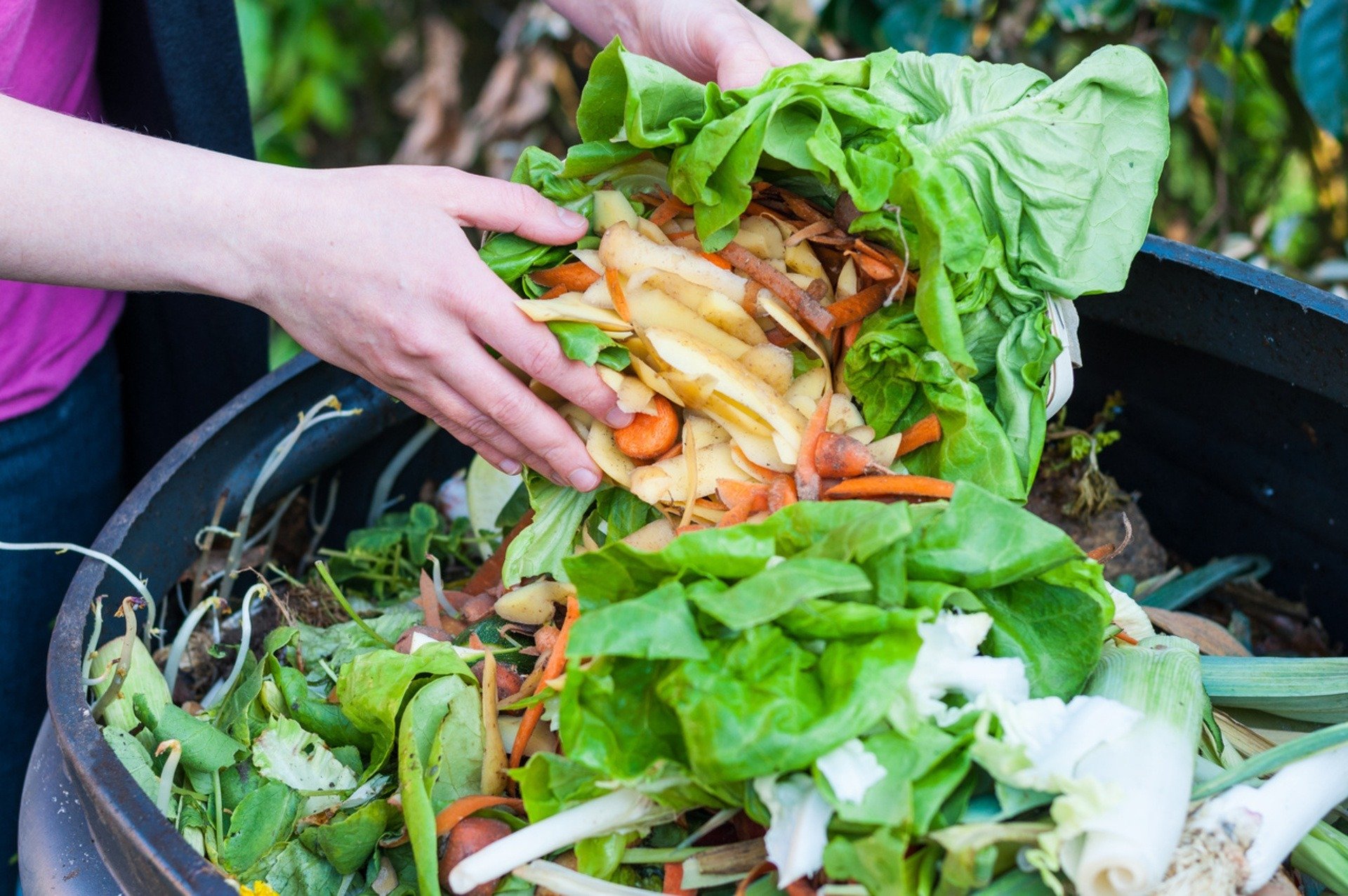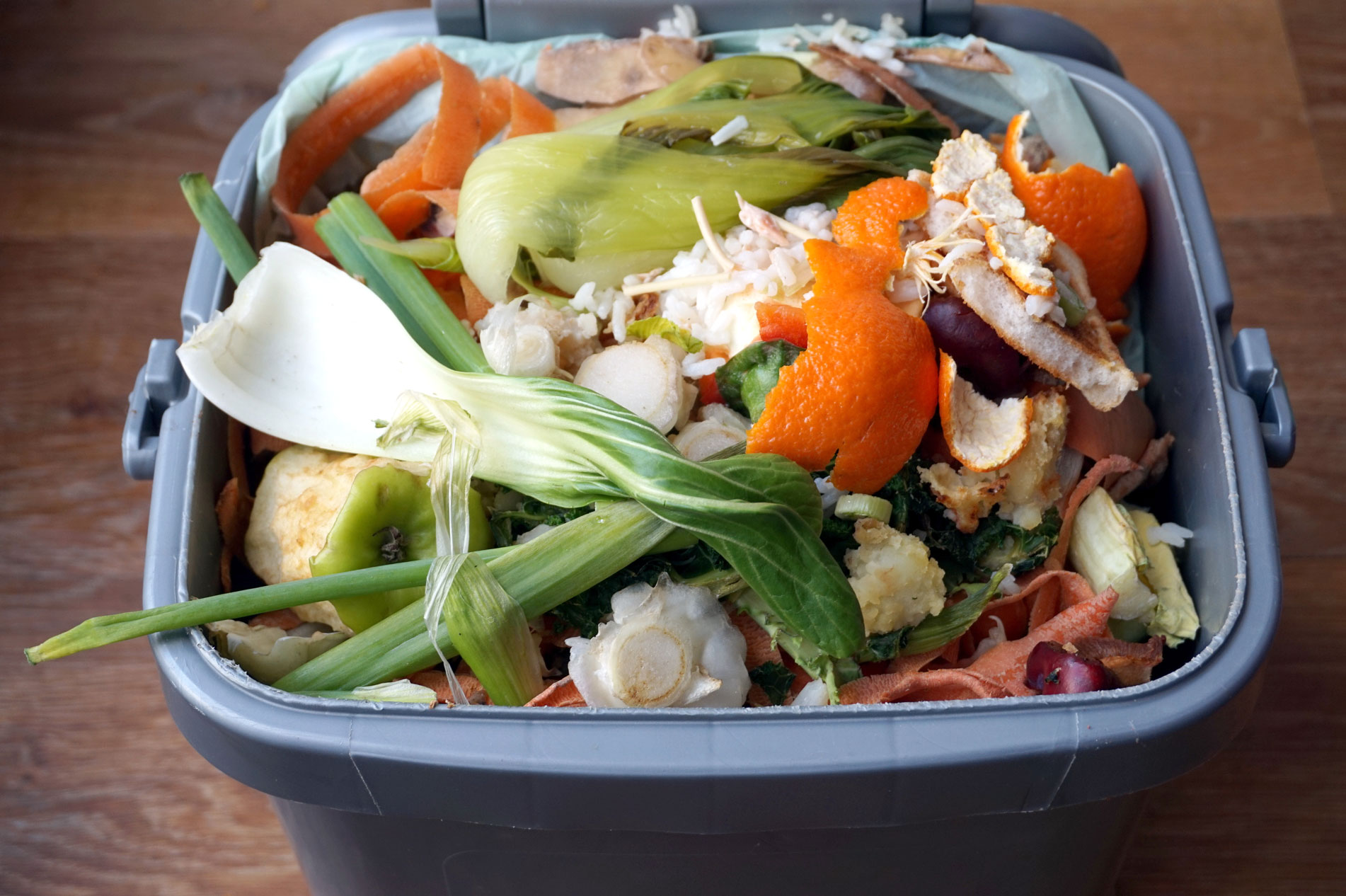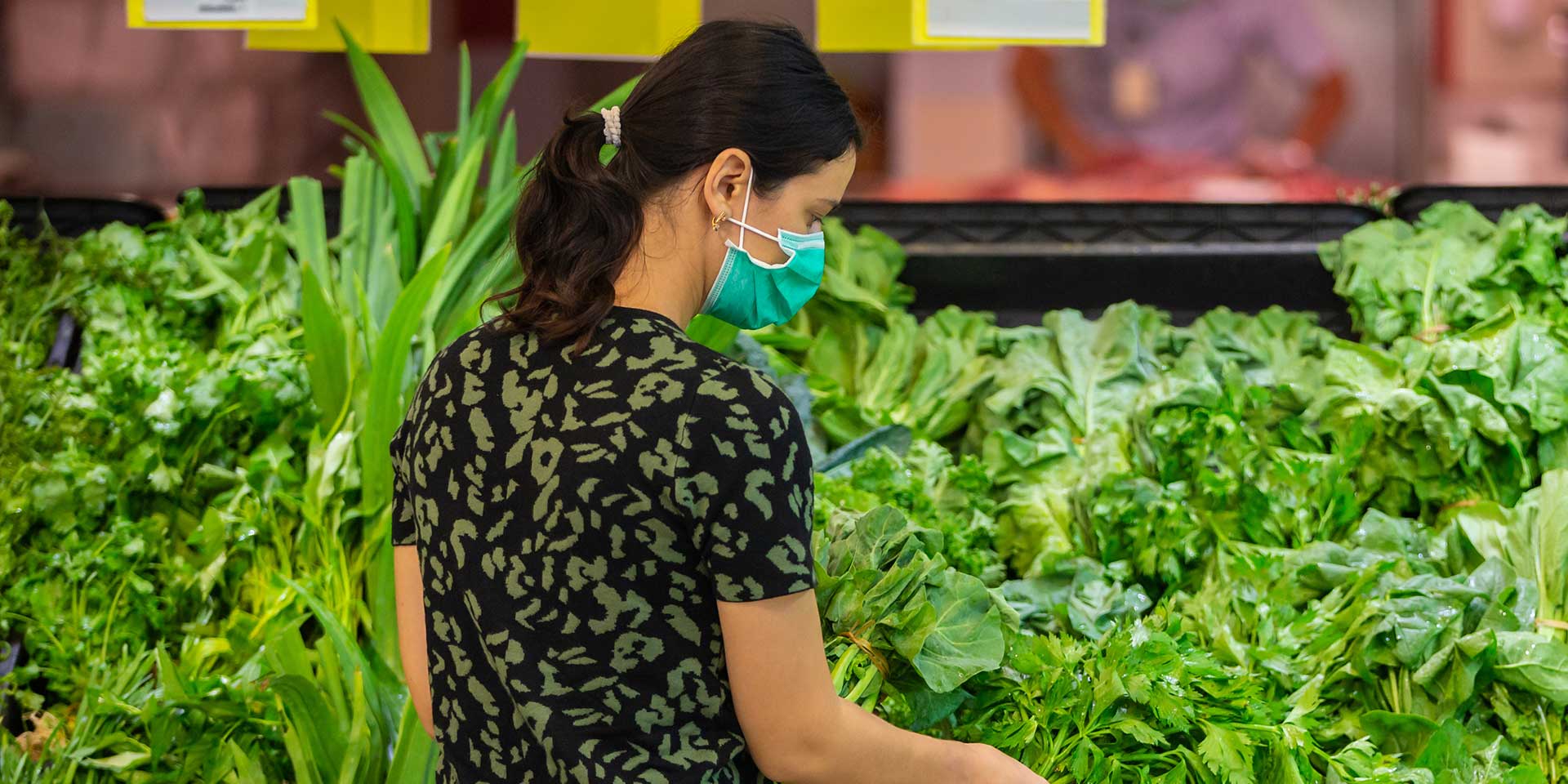Are Municipalities Suspending Food Scrap Collection & Drop-Off Due to COVID-19?
On May 4, New York City residents found themselves with nowhere to toss their food scraps other than the trashcan. Both curbside pickup — available to almost half the population — and drop-off at 170-plus sites throughout the city that facilitated turning this smelly bounty into compost, were suspended in the midst of the COVID-19 pandemic.
City Council Speaker Corey Johnson, who weeks earlier proposed mandatory citywide scrap food scrap collection as a sustainability measure, said the curbside halt, until June of 2021, was “necessary as we face an unprecedented hit to our economy.” Safety concerns due to density issues at drop-off sites like farmers’ markets contributed to the decision to cut those programs.
Have other communities across the country, which share the same concerns, managed to maintain their organics collection programs, especially as COVID-19 has led to pushbacks against other eco-friendly practices, like bringing reusable bags to the supermarket? The short answer: it depends.
Cities Who Have Suspended Compost Programs
About one-third of New York City’s residential and institutional garbage — which totals 12 thousand tons a day — is comprised of food waste and yard trimmings; these are expensive to landfill and they contribute to climate change because of the high levels of methane that rotting organic matter produces.
But as a city of almost 8.5 million people, New York is an anomaly in terms of the amount of refuse it generates. Likewise, it “seems to be a one-off” when it comes to suspensions of government-funded residential food scrap collections in large urban areas, says Nora Goldstein, editor of organics recycling magazine BioCycle.
Lexington, Kentucky, Alexandria, Virginia, and Melissa, Texas, all of which have populations under 350,000, announced municipal yard waste or food-scrap suspensions. Still, these sorts of decisions are “sporadic,” according to Frank Franciosi, executive director of the US Composting Council (USCC), and “depend on the locale. Some of it is being driven by fear, some is driven by not having enough workers to [separately] collect organic waste and trash.”
Where Food Scrap Collections Continue
In places like Portland, Oregon, San Francisco, Denver, and Seattle (all with populations over 620,000), food scrap collections continue, as do food scrap drop-offs where they’re normally offered, according to these cities’ websites. In Washington, D.C., composting is still considered an “essential service when it comes to waste management,” says Jeremy Brosowsky, whose company, Agricity, collects scraps from area farmers’ markets. He makes sure to conform to market safety protocols, with his team wearing masks and gloves; shared items have also been removed from the display table and collection bins are spaced for physical distancing.
Similarly, in King County, Washington, safety protocols have been enhanced at waste transfer stations, where residents can drop off yard trimmings. Market development program manager Andy Smith says that what’s mostly been needed is “a staggered entry system to limit the number of people at the station at one time.” Curbside pickup of food scraps continues across the county as well.
In Austin, Texas, curbside collection of organics has actually increased by 12 percent over the same period last year. To ensure the health of its waste haulers, the city has instituted a host of pandemic-related safety measures: temperature checks; outdoor hand-washing stations; and the provision of hand sanitizer, masks and gloves, and spray bottles of disinfectant.
Both Brattleboro, Vermont and Lake County, Illinois, report not only that residential organics collection continues, they’re also fielding an uptick in requests to purchase compost, possibly due to a spiking interest in home gardening.
No Time to Quit Composting
Despite these positive (for now) outcomes, the pandemic has had an impact on organics collection programs. Although no one has so far conducted an official poll, an informal survey undertaken in mid-April by the Institute for Local Self-Reliance (ILSR) of 477 composters, haulers and government employees from 44 states, D.C., Puerto Rico, and 11 other countries found that 10 percent of respondents reported a shutdown of food-scrap-collecting and pick-up operations, and 20 percent reported cutbacks to programs. And while 46 percent reported no change in service, ILSR’s Director of Composting for Community Brenda Platt says this could change in upcoming weeks and months.
At the moment, Platt says it’s private food scrap collectors around the country who have been hit hardest thanks to the shuttering of restaurants, bakeries and coffee shops they depend on for business. But municipal operations might likewise hit snags because “Budget shortfalls, oy, they’re hard,” she says. If a city or town is considering curtailing services due to safety concerns, though, that, says Platt, can easily be addressed.
Keeping Compost Pickup and Dropoff Safe
BioCycle did just that in early April, when the magazine published a story by soil scientist Sally Brown that debunked anticipated fears residents or sanitation workers might voice about handling coronavirus-infected organic waste. The article proposed common-sense measures like hand washing and wearing personal protective equipment: masks, gloves, and safety goggles. It also maintained that the virus likely could not survive the “hungry” bacteria responsible for turning food to compost.
What really concerns BioCycle’s Goldstein is the possibility that landfill operators will lobby to reclaim organics waste. Some want to purposefully add more organic matter to their sites, then capture the methane it releases to use as biogas; but Goldstein says food scraps decompose too quickly for this to work. Other operators want that waste “primarily for the tipping fee” — a charge for accepting trash — “because they have quarterly earnings to shareholders that are dictated by getting as much waste, organics included, as possible,” she says.
“Some people are using the pandemic as an excuse to derail” organics collections programs, agrees USCC’s Franciosi.
Eric Goldstein, New York City environment director for the Natural Resources Defense Coalition (NRDC) says, at least in New York, “We haven’t seen a tipping fee push at all.” What he worries about with “temporary setbacks” of organics collection suspensions is “that it could send a mixed message to people that maybe composting is not so important after all, which would be extremely unfortunate.”
A 2017 residential food waste collection survey that BioCycle conducted with ILSR showed that 6.7 million American households had access to yard and food waste composting that year. “In every major metropolitan and suburban area organics composting — especially of yard waste — was fairly well established. But access [specifically] to the collection of food scraps,” Goldstein says, has also been rising steadily.
This momentum means “Now is not the time to give up on food waste recovery,” says ILSR’s Platt, pointing out that it makes an appearance in a number of Project Drawdown’s proposed climate change solutions, including conservation agriculture and bioplastics in addition to the more straightforward composting. “But I think we’ll see a resurgence in community sites and drop-offs once we’re on the other side of the peak in new [COVID-19] cases.”
In fact, New York might already be heading for a bit of a respite from its suspensions. NRDC’s Goldstein says New York’s City Council, responding to pressure from citizens, community composters, and environmental groups, may soon propose to restore funding “and expand opportunities for community-based drop-offs, and I hope they will quickly enact legislation along these lines.”
He’s also heard that when schools reopen, hopefully in September, their organics collection programs will continue to operate — perhaps the most optimistic news of all. Because ultimately, says Goldstein, “We need the next generation to participate in food waste composting as an automatic habit so that people will one day think how crazy it is to take food waste and send it to a landfill.”
More Reading
Can recycled soil blends support a more sustainable future?
September 5, 2025
How can we cut food waste in half by 2030?
September 5, 2024
What Is Soil and Why Is It Important?
December 4, 2019
City Composting 101: Stickers, Bags, and Containers
March 26, 2019
Kondo Your Kitchen
February 5, 2019
Lessons Learned from Launching a Composting Program
November 13, 2017



